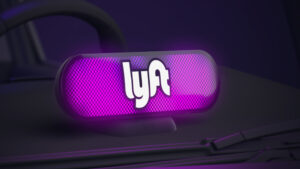
A few Sundays ago, John Oliver devoted the main segment of “Last Week Tonight” to food delivery apps.
He reinforced the point that the only people making money from them are the founders, leaving restaurateurs with the short end of the stick and drivers without any semblance of a working wage nor health insurance and other benefits because they’re independent contractors, not employees.
It’s not just food delivery apps. The same applies to the ride share companies Lyft and Uber, which give consumers a great deal by undercutting the prices charged by local taxi companies, many of which were running on thin margins but have since gone belly up.
Here’s an example. During my recent vacation in Houston, I took a Lyft from my hotel to the Johnson Space Center, a ride of about a half-hour.
The driver was nice and chatty, so I asked him how long he’s been driving for Lyft. He told me it was about seven months, but before that he’d been a cab driver for 27 years. Unfortunately, he said, Lyft and Uber have killed the taxi business in that town, so he had no choice but to make the switch. However, he now only makes half as much as he used to, because the gig economy apps charge so much less.
He explained that in a cab, my trip would have cost about fifty bucks, but Lyft was only charging me $23, and Uber would have been the same. Out of that, he only gets $13. Even with my 20% tip, his take home would be under $18, whereas in a cab, that drive (which he’d done quite often over the years) would have netted him more like $45.
The tech geniuses who created these companies have been successful in disrupting the taxi business, but to whose benefit? Certainly not the drivers or retail investors. In the five years since Lyft’s IPO, the price of a share has dropped 75%.
As for consumers, we’re happy to take advantage of the convenience and low prices, made possible because every ride is essentially subsidized by the venture capital firms that have poured huge sums of money into these corporations, which have been hemorrhaging hundred of millions of dollars for years (Uber just became profitable in 2023, the same year Lyft had a net loss of $340 million ).
But we’re not left with much of a choice — there was no cab stand at my hotel.
